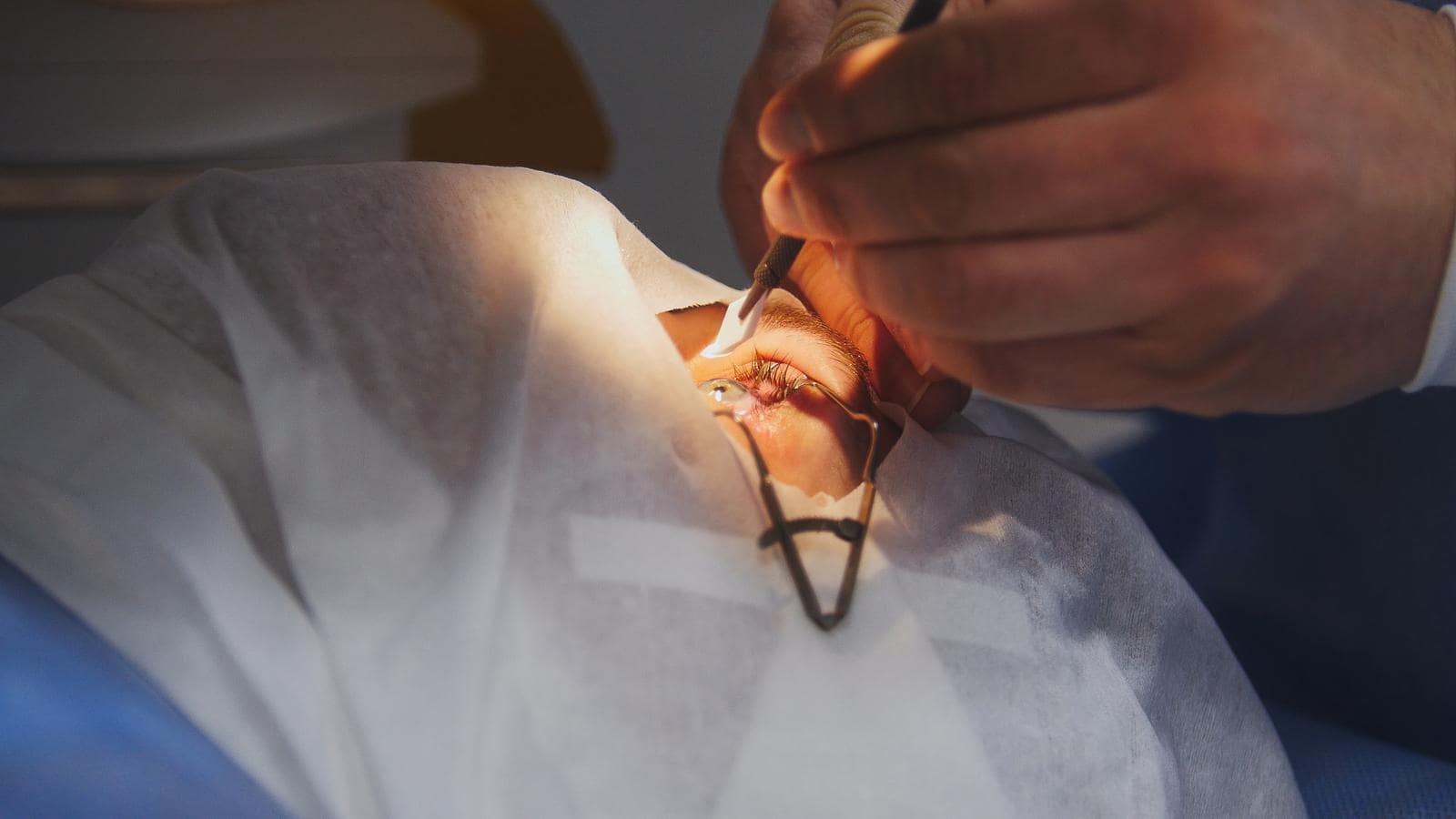Updated on May 6, 2025
The Best Age to Get LASIK Eye Surgery—Refractive Errors, Age Limits


Vision Center is funded by our readers. We may earn commissions if you purchase something via one of our links.
LASIK, which stands for laser-assisted in situ keratomileusis, is an eye surgery that permanently corrects your vision by reshaping the corneal tissue.

The surgery, which only takes about 10 minutes per eye, ultimately treats three primary refractive errors:
What is the Best Age to Get LASIK?
The best age to get LASIK eye surgery is between 20 and 40 years old or when you’ve had a stable prescription for at least two years.
Everyone is different, and it’s wise to consult your eye doctor about whether or not you are a good candidate for LASIK.
How Old Do You Have to Be to Get LASIK?
LASIK is only FDA-approved for adults ages 18 and up. Many eye doctors will not perform LASIK on people younger than 25 because their eyes are likely to change. They will probably recommend wearing glasses or contact lenses until your vision stabilizes.
For many people, eyesight continues to change until about age 24. Most surgeons require you to have a stable prescription for one to two years before getting LASIK.
LASIK Eye Surgery Age Limit
There is no upper age that prevents seniors from getting LASIK. However, several health considerations determine whether someone qualifies for the procedure.
People with certain autoimmune or immunodeficiency diseases are at a higher risk for healing complications. Taking certain medications may disqualify you from the procedure. These include:
- Immunosuppressants
- Anti-inflammatories
- Steroids
- Isotretinoin (Accutane)
- Amiodarone
However, you may qualify for LASIK if you stop taking these medications for a certain time before the procedure.
Only a consultation with a qualified eye surgeon can help determine if you should get LASIK. Most surgeons will let you schedule a free consultation where they can make sure your eyes are healthy and answer any questions you have.
LASIK for Older People
Older people are eligible for LASIK if they meet the other criteria. The age limit for LASIK is not set in stone, and it’s ultimately up to your eye surgeon to decide if you’re a good candidate.
However, those over 60 are recommended to receive monovision LASIK. This procedure corrects one eye for near vision and the other for distance vision. This allows older people to maintain good vision at all distances without relying on glasses or contacts.
Eye Conditions That Impact LASIK Candidacy
Age is the only factor affecting your candidacy for LASIK eye surgery. Certain eye conditions and vision problems can also impact your LASIK candidacy. These include the following:
- Presbyopia. When your eyes gradually lose the ability to see clearly, which happens with age
- Cataracts. Cloudy areas in the lens of your eye, which can occur with age
- Keratoconus. When the cornea thins out and bulges
- Uncontrolled glaucoma. Eye disorders that can cause progressive damage to the eye’s optic nerve
- Corneal disease. A condition that can cause clouding, distortion, and scarring, which can sometimes lead to blindness
- Other retinal and optic nerve diseases. These conditions can increase your risk for complications after LASIK
Summary
There is no set age limit for LASIK surgery. However, most surgeons will not perform the procedure on patients under 18.
Additionally, certain eye conditions and vision problems can impact your candidacy for LASIK surgery. It's important to talk with a qualified eye surgeon to determine if you are a good candidate for the procedure.
In this article
13 sources cited
Updated on May 6, 2025
Updated on May 6, 2025
About Our Contributors
Mara Sugue, with a B.A. in Social Sciences, is a dedicated web content writer for Vision Center. She is committed to making eye health research accessible and understandable to people from diverse backgrounds and educational levels. Her writing aims to bridge the gap between complex vision health topics and readers' needs for clear, factual information.
Dr. Melody Huang is an optometrist and freelance health writer with a passion for educating people about eye health. With her unique blend of clinical expertise and writing skills, Dr. Huang seeks to guide individuals towards healthier and happier lives. Her interests extend to Eastern medicine and integrative healthcare approaches. Outside of work, she enjoys exploring new skincare products, experimenting with food recipes, and spending time with her adopted cats.

